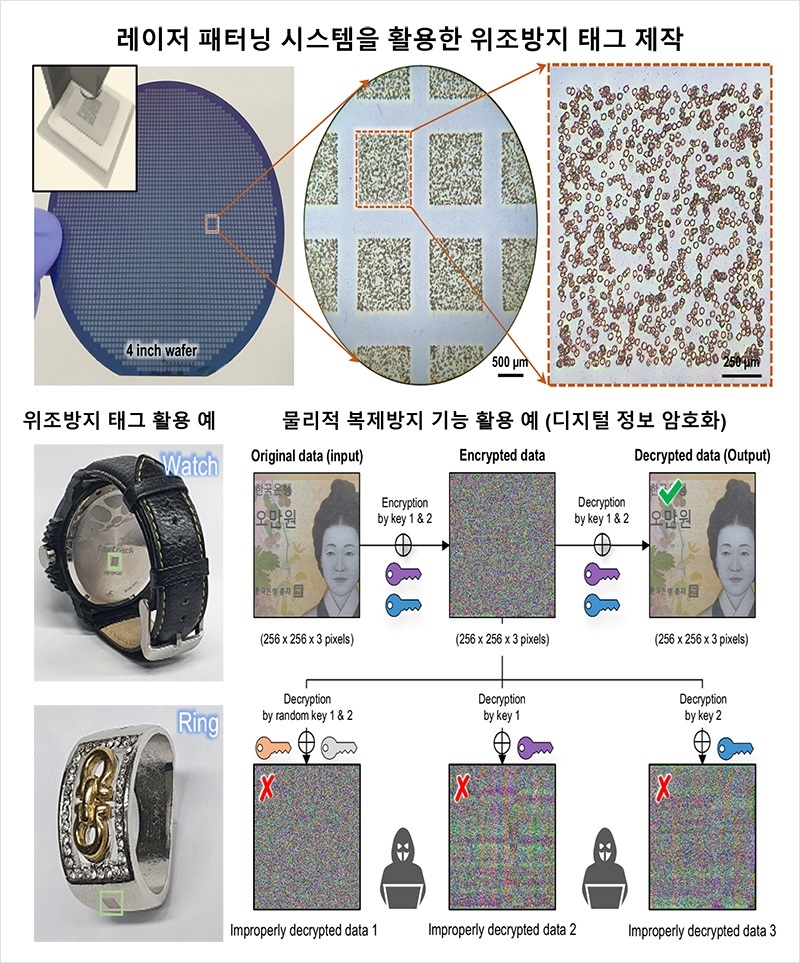2024-10-30
Professor Wook Park and his research team at the Department of Electronic Engineering, in collaboration with Professor Sunkook Kim’s team from Sungkyunkwan University, have developed a next-generation anti-counterfeiting technology using a random laser ablation technique. The research findings were published in Nature Communications (IF=14.7) under the title, Random Laser Ablated Tags for Anticounterfeiting Purposes and Towards Physically Unclonable Functions. This new method uses a nanosecond pulsed infrared laser to etch random crater patterns onto silicon wafers, creating tags with high-security features and Physically Unclonable Functions (PUFs).
The newly developed laser ablation technique offers several advantages over conventional anti-counterfeitingsystems. Current authentication tags often rely on relatively predictable patterns, making them vulnerable to counterfeiting. However, the laser patterning technology employed in this research achieves a high level of randomness, significantly reducing the risk of replication. By precisely adjusting the laser’s rotation angle and scan speed, the team produced complex, random crater formations on the tag surfaces, resulting in security tags thatare virtually impossible to replicate.
This breakthrough opens up promising applications across a wide range of industries, from authentication systems and e-commerce to military equipment and medical devices. By creating inherently unique tags, thistechnology ensures product authenticity, mitigating the risks and economic losses associated with counterfeit goods. Additionally, the simplicity and speed of the laser ablation process make it highly scalable, reducing production costs while boosting security.
Professor Park stated, “This research enabled us to address the limitations of conventional security tags and introduce a robust solution that is practically impossible to replicate. We are optimistic about the broad potential of this technology across various sectors in the future.” The study received support from the National Research Foundation of Korea’s Basic Technology Development Program (Nano and Materials Technology Development Program) and the Key Research Institute Program for Science and Engineering Fields.





